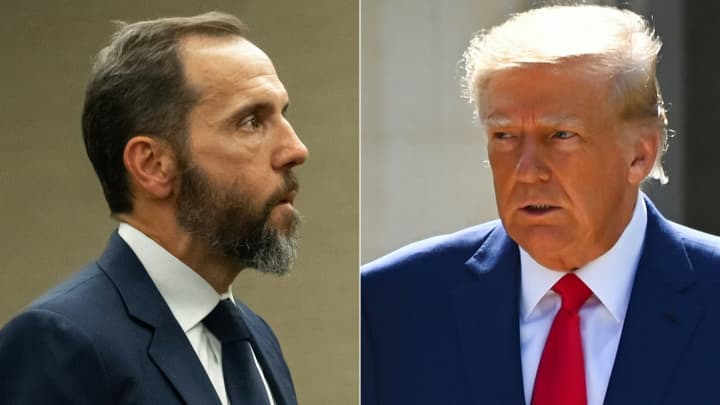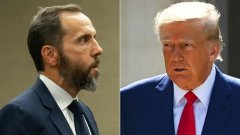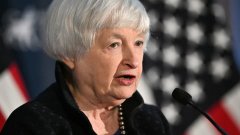
A panel of Washington, D.C., federal appeals court judges was highly skeptical of arguments Monday by a lawyer for that the former is being unconstitutionally silenced by a in his criminal case.
But the judges also expressed concerns about the scope of the gag order and questioned a federal prosecutor about where to draw the lines around Trump's speech.
The hearing in the U.S. Court of Appeals for the D.C. Circuit is the latest clash over the Republican's bellicose statements about his many criminal and civil cases. Trump's prosecutors and judges in those cases have warned that his attacks — on social media, at campaign rallies and outside courtrooms — could of those involved and the proceedings themselves.
Trump was slapped with the gag order last month by U.S. District Judge Tanya Chutkan, who said his statements targeting people involved in the case posed "sufficiently grave threats to the integrity of these proceedings."
Chutkan's gag order barred Trump from making public statements targeting his prosecutors and "reasonably foreseeable" witnesses regarding the substance of their testimony. Trump is charged in the case with illegally conspiring to overturn his loss in the 2020 election to President , a Democrat.
The three-judge panel grilled Trump's attorney for more than 75 minutes as it questioned whether Trump was asking to be treated differently from other criminal defendants because of his current status as a 2024 presidential candidate.
The judges also suggested Supreme Court decisions permit the ban.
One judge snapped at the attorney, D. John Sauer, when he continually resisted answering her hypothetical questions about the order.
"I don't hear you giving any weight at all to the interest in a fair trial," Judge Cornelia Pillard told Sauer at one point after calling his position "elusive."
Sauer replied that "the showing would have to be extraordinarily compelling" in order to justify restricting Trump's speech.
An attorney for special counsel Jack Smith, who is prosecuting Trump, also faced some tough questioning as he argued that people have repeatedly been threatened or harassed after being targeted by Trump's social media posts.
The judges needled the attorney, Assistant Special Counsel Cecil VanDevender, about how to balance the defendants' free speech rights with the interest in conducting a fair trial.
Judge Patricia Millet stressed the importance of carving out that middle ground with a "careful scalpel" and not "skewing the political arena."
Two of the appellate judges, Millet and Pillard, were nominated to their seats by then-President , a Democrat. The third, Bradley Garcia, was nominated by .
Trump has pleaded not guilty to the four-count indictment charging him with crimes including conspiracy to defraud the United States.
Trump's lawyers promptly appealed Chutkan's order to the D.C. appeals court, arguing that it violates Trump's First Amendment right to speak publicly about his legal battles, especially as he runs for president again in 2024.
The appellate judges on Nov. 3 temporarily lifted the gag order while they considered Trump's request for a longer pause as part of his appeal. They noted that their temporary stay "should not be construed in any way as a ruling on the merits" of the gag order.
Smith's team has argued that Trump's statements are intended to intimidate potential witnesses and warned that they could affect the D.C. jury pool for the trial.
After Chutkan temporarily paused the gag order last month, Trump sent statements suggesting that his former chief of staff Mark Meadows, a likely witness, had been coerced by Smith into testifying.
Chutkan, who had paused the gag order in order to weigh Trump's request for a stay pending appeal, in late October.




